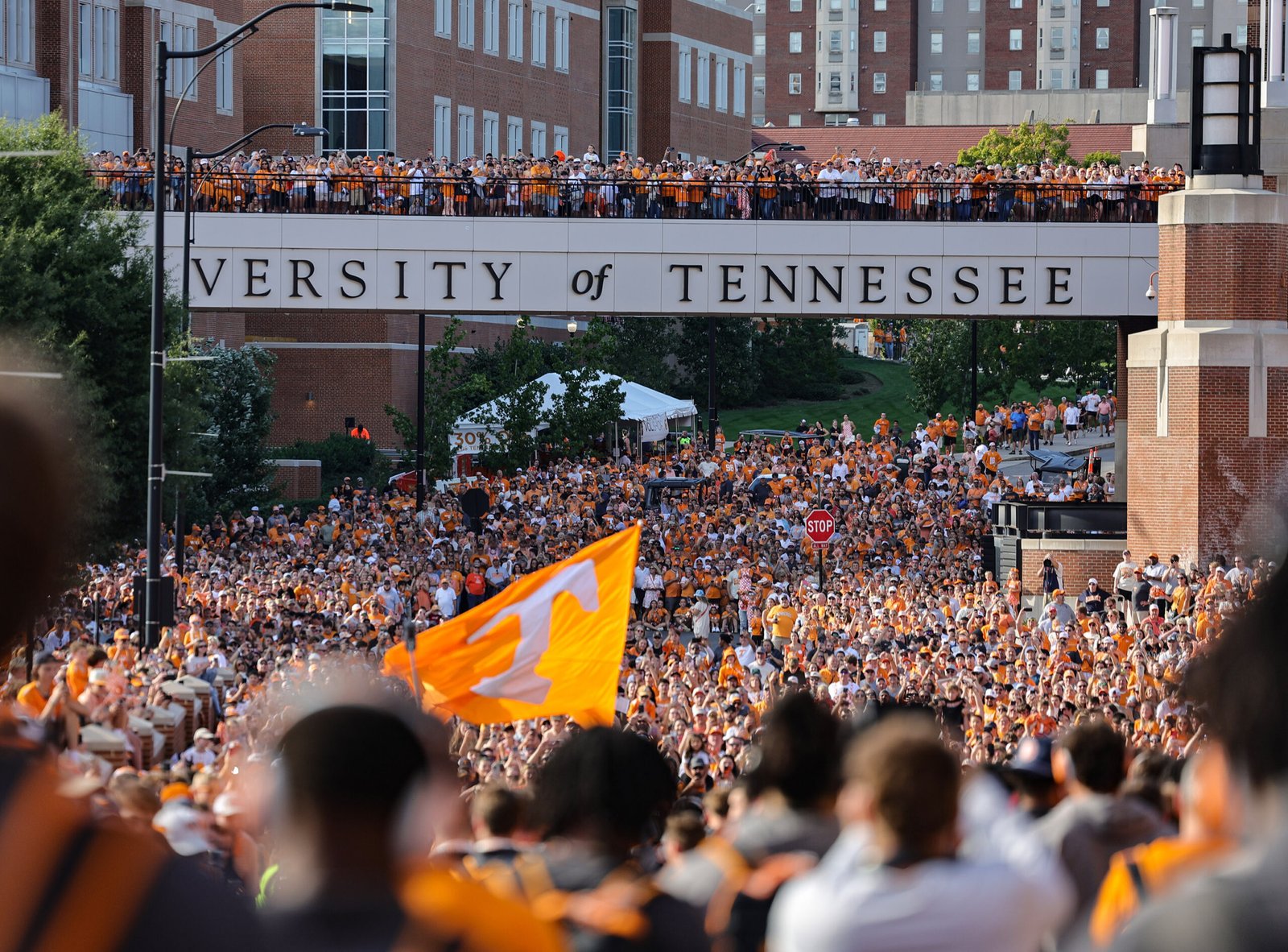
As reported by ESPN, the University of Tennessee, as part of its future plans for revenue-sharing with players in 2025, will tack a 10-percent “Talent Fee” onto the ticket prices. The university announced this in an email to football season ticket holders this week, complete with a video from athletic director Danny White, in which he describes the new fee as “part of an extensive plan to continue our dominance in college athletics and build something like never seen before.”
The 10 percent fee applies to both season tickets and single game tickets, but along with that, the university plans to add an average increase of 4.5 percent on all football ticket prices. And they point to NIL as being responsible for the markup.
“In this era of name, image and likeness (NIL), there has never been as close a connection between resources and competitive success. We want to be a leader in college sports. That means we want to be a leader in revenue sharing.”
Danny White
With this comes the first domino in how universities plan to pass the buck onto their fanbase and taxpayers. Never mind the fact that in 2023 the football program specifically netted the school $134.9 million in revenue and $75 million in profit. This trend will allow for the schools to try and maximize their own profits even as athletes eat into their pie.
With the upcoming NCAA revenue-sharing plan in 2025—as established by the House vs. NCAA case—schools can share up to $22 million of their annual revenue with their athletes. As a result, schools will be looking for all sorts of underhanded ways to raise money and offset the costs. More conspiratorially, the talent fee is also a method of generating ill will and resentment towards athletes and NIL by price-gouging fans and crying poor—which, to be fair, is hardly a unique tactic in the American economic system.
Tennessee being good again is a factor in this as well, as that’s the only way any football program would even think they could pull this off. For schools opting into the new revenue-sharing plan, they’ll need $30 million to cover the money going to athletes. Tennessee’s NIL fund raised about $150 million just last season, and the school seemed to have no problem finding money to make White the country’s highest-paid public university athletic director, and to give raises to multiple coaches and administrators all through their sports programs. A price hike was always expected, that’s capitalism, but the presentation of “everyone has to do their part to help the team” nonsense is stupid and condescending. And it’s almost certainly coming to a school near you.







